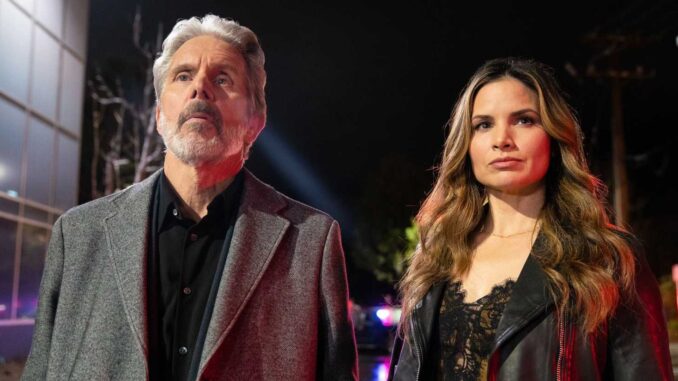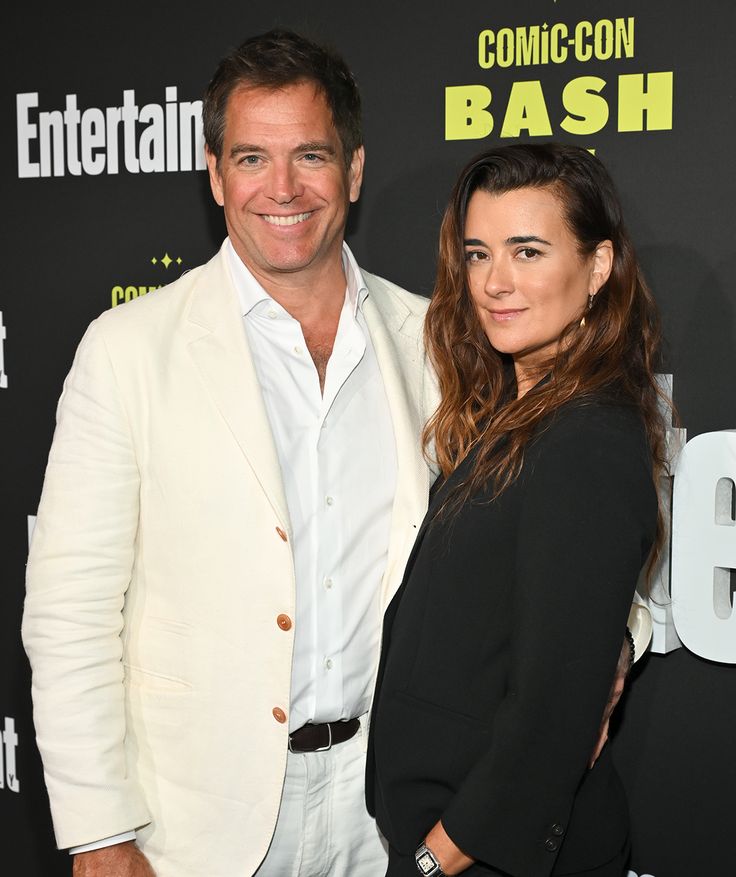
NCIS season 23 is getting ready to take CBS by storm, and as it brings a whole new round of storylines into the mix for the MCRT, it’s clear that after 8 seasons, the show is finally reshuffling its hierarchy behind the scenes. NCIS season 23 will bring all of the previous season’s MCRT members back into the fold, but it feels like a shift for the show.
NCIS season 23 is getting ready to take CBS by storm, and as it brings a whole new round of storylines into the mix for the MCRT, it’s clear that after 8 seasons, the show is finally reshuffling its hierarchy behind the scenes. NCIS season 23 will bring all of the previous season’s MCRT members back into the fold, but it feels like a shift for the show.
After years of change from NCIS, viewers have come to know and enjoy the dynamics at play on the team. With the MCRT led by Agent Alden Parker (Gary Cole) after nearly 20 seasons of Leroy Jethro Gibbs (Mark Harmon) calling the shots, NCIS has settled into a new groove. With different leadership have come different dynamics, shifting viewers’ perspectives and expectations.
While NCIS’ agents have all been part of the team for years, viewers have struggled to see the way each team member fits within the MCRT. Though team members Timothy McGee (Sean Murray), Nick Torres (Wilmer Valderrama), Jessica Knight (Katrina Law), and Kasie Hines (Diona Reasonover) have all become familiar for viewers, from the previews of NCIS season 23, it appears things have changed within the teams’ makeup.
The Shift That Began In NCIS Season 15 Is Finally Paying Off
The Shows Creative Team Reboot Sparked Something New. Although most viewers think of the season that changed the show as NCIS season 19, the shifting tides actually started a few years prior. NCIS season 15, the first of the series without longtime showrunner Gary Glasberg, who’d passed the season prior. With a new direction in the day-to-day of the series, things began to shift in the way the stories were told.
The Calm Before the Shift — NCIS in Transition
NCIS has always felt like it had a steady backbone: strong leadership, stable roles, and characters you know inside and out. But after many years—across multiple seasons—the show is undergoing a subtle, behind-the-scenes restructuring. Not as loud as a cast shake-up, but potentially just as significant.
What We Mean by “Hierarchy” in NCIS
Before digging into what’s changing, we should clarify what “hierarchy” means here:
-
On-screen leadership roles: who’s the Director, Senior Agents, Deputy, etc.
-
Off-screen power dynamics: writers, producers, showrunners, who makes the calls, who has creative control.
-
Crossovers & Spinoff Oversight: how NCIS’s universe-wide leadership works.
The Director Role — Leon Vance’s Shrinking Influence
Vance’s Domain Has Less Reach
Leon Vance, played by Rocky Carroll, has been NCIS Director and a connective tissue across the franchise. However, recent spinoff cancellations are reducing his offices to oversee, which means fewer crossovers and less shared territory.
From Rule-Bending to By-the-Book
Sources suggest Vance is acting with more constraint: fewer rogue missions, more bureaucratic oversight. This shift signals that the show may be pulling him back from being a wildcard figure to a more official, procedural head.
McGee Rising — Acting Director Moments & What They Suggest
When Vance Is Out, McGee Steps Up
There have been episodes where Leon Vance is incapacitated (hospitalized, for example), and Tim McGee is appointed acting Director. These moments aren’t just plot devices—they could be testing grounds.
The Question of Permanent Succession
Fans and discussions wonder: if Vance steps down eventually, will McGee be next? Some show signs seem to align for that possibility. The idea isn’t confirmed, but the storyline direction suggests that this isn’t just wishful thinking
Spinoffs & the Franchise Universe — Leadership Has Less Turf
Fewer Spinoffs = Less Shared Control
NCIS has launched many shows: Hawai’i, Sydney, etc. But with some shows cancelled and fewer active field offices, there’s less shared narrative space for characters like Vance to command cross-series influence.
Origins & Tony & Ziva: New Challenges, Different Power Structures
New additions like NCIS: Origins and NCIS: Tony & Ziva come with different leadership, narrative focus, and production teams. That means the central NCIS show’s leadership hierarchy isn’t as globally dominant as before. It’s no longer just one team but multiple centers of power.
On-Screen Characters, Off-Screen Roles — Writers & Producers’ Influence
Showrunner Changes & Creative Control
With long-running shows, over time, writers, showrunners, and producers evolve. Sometimes, new names emerge, bringing new priorities: less about Gibbs-style rule-breaking, more about procedure, character arcs or ensemble focus. There’s a slow drift in tone. Fans notice it.
Seniority vs. Title — Who Really Makes the Decisions
McGee isn’t just a senior agent in terms of years on the job; when called into acting Director roles, he sees how decision-making works. Vance’s role, while titular, may be more constrained than it was, meaning the real power could be shifting toward those who carry weight — showrunners, senior cast, those trending in storyline arcs.
Why This Reshuffle Matters
Narrative Consequences
If McGee becomes director permanently, or Vance’s role becomes more symbolic, storytelling will inevitably shift. Cases might focus more on field work, ensemble dynamics, internal conflicts about leadership, even moral quandaries about bureaucracy.
Audience Perception & Loyalty
Fans care about who leads, not just in rank, but in spirit. Characters’ arcs around leadership — McGee’s growth, Vance’s burdens — will affect how invested viewers stay. Changes in hierarchy are not just production decisions; they tie into what viewers relate to.
Franchise Continuity & Brand Identity
NCIS as a brand has thrived on its ensemble, its mix of institutional authority + rule-breaking agents. If too many leadership changes occur invisibly (i.e. without story acknowledgement), the identity of the show could feel blurrier.
Potential Scenarios for NCIS’s Future Leadership
-
McGee formally promoted to Director — Either permanently or over time, showing arc of mentorship, trust.
-
Vance elevated to a more administrative role or phased out — Possibly toward roles like oversight across spinoffs or even leaving.
-
Shared leadership model — More agents stepping into leadership roles temporarily or rotating, diluting top-down power.
-
Off-screen production power distributed — Showrunner or head writer’s influence becomes more visible, perhaps overshadowing Director role in narrative importance.
Clues We’ve Seen So Far
-
McGee acting as interim Director during Vance’s absence.
-
Spinoffs canceling, reducing Vance’s scope.
-
Changes in storytelling style: more teamwork, more procedural.
-
New spinoffs with different creative leads.
What Might Trigger A Full Reshuffle?
-
Retirement or departure of a main leader (Vance, for example).
-
Ratings or fan feedback pushing for new perspectives.
-
Internal production changes (new showrunner, new executive producer).
-
Dramatic plot: a storyline that forces leadership vacuum.

How Other Long-Running Shows Hand Similar Shifts
If you’ve watched Law & Order, Grey’s Anatomy, or similar, you’ll recognize this: as seasons stack, the foundation (leaders, tone, structure) must evolve or the show becomes stale. NCIS seems to be following that pattern, pacing out changes so they don’t feel jarring, but still shifting power beneath the surface.
Conclusion
NCIS isn’t shouting about its reshuffle—but the evidence is clear: leadership is changing, both on screen and off. Leon Vance’s influence seems more contained. Tim McGee is stepping into bigger shadows. Spinoffs are shifting the control landscape. And the writers and producers are gaining more sway in defining what NCIS feels like today.
If the show continues, expect McGee’s role to grow; expect more ensemble leadership; expect Vance’s character may evolve into something less action-centric, more anchored in official duties. This quiet reshuffling could be the turning point that defines NCIS’s next era.